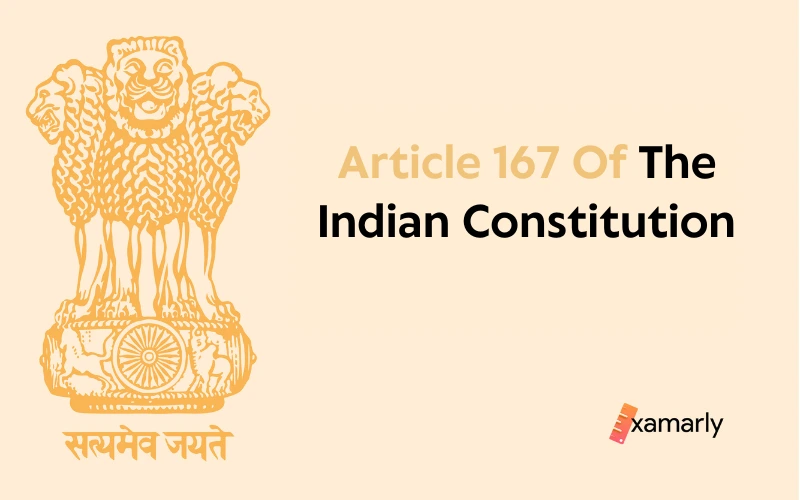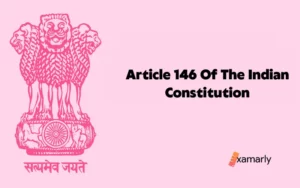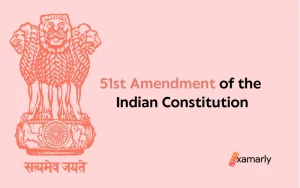The office of the Chief Minister is an integral part of India’s state-level democratic system. The CM has certain constitutional duties, including advising and informing the Governor about affairs in their state. Article 167 outlines the specific duties of the Chief Minister as it relates to the information they are required to provide to the Governor.
This article seeks to explain the various roles and responsibilities of a CM under Article 167 of the Indian Constitution.
Article 167 of the Indian Constitution: Duties Of Chief Minister
The Constitutional Provisions of Article 167 stipulate the Duties of CM.
The Chief Minister of each State shall have the following duties:
- (a) to inform the Governor of the State of all Council of Ministers decisions pertaining to the management of the State’s affairs and proposals for legislation;
- (b) to provide any information pertaining to the management of the State’s affairs and legislative proposals that the Governor may request; and
- (c) if the Governor so requests to submit any topic on which a Minister has made a decision but which has not been discussed by the Council of Ministers for consideration.
Chief Minister
The Chief Minister serves as the head of the State Council of Ministers; he also serves as the actual executive head of state government.
He is a crucial figure in the state and possesses enormous power.
There is no explicit process described in the Constitution for choosing and appointing the Chief Minister.
The CM is chosen by the Governor in accordance with Article 164 of the Indian Constitution.
It further specifies that in addition to the Chief Minister, there would be a Council of Ministers who are responsible for providing the governor with assistance and advice.
Following the conclusion of the election for the Legislative Assembly, the process of creating the government will get underway.
The right to establish the government belongs to the political party that received the highest number of votes in the Legislative Assembly, also known as the Vidhan Sabha.
Regardless of the governor’s personal preferences, the position of the chief minister must be filled by the leader of the party that holds a majority share of votes in the state legislative assembly elections.
On the basis of the Chief Minister’s suggestions, ministers are chosen. The Chief Minister of a state might come from either of the two houses that make up the legislature of that state.
Related Provisions
- The following articles must all be read in connection with article 167.
- Article 154 of the Constitution,
- Article 163(1) of the Constitution,
- Article 164(2) of the Constitution, and
- Article 166(1) of the Constitution
- In light of the fact that the Governor has executive power over the State (Clause (1) of Article 154 of the Indian Constitution ) and that all executive actions are carried out in his or her name (Clause 1 of Article 166), it is solely appropriate that the Governor be kept informed of all administrative decisions.
- For a bill to become law after it has been approved by the state’s House or Houses, the state’s Governor must sign it.
- As a consequence of this, the Governor needs to have complete authority to be updated on the decisions made by the legislature.
- According to Clause 1 of Article 163, the Governor must make decisions with the support and counsel of the Council of Ministers, not just one Minister.
- Additionally, pursuant to Article 164 (2), the Council of Ministers is collectively responsible to the Legislative Assembly. As a result, the Governor may request a reference to the Council of Ministers under the provisions of clause (c) of Article 167 if any significant decisions are made by a Minister without the topic first being discussed by the entire Council of Ministers.
- The Governor is not permitted to veto a Ministerial decision that the Council approves.
- Article 167 gives the governor “persuasive and not dictatorial power to overrule or veto the decisions or proposals of the council of ministers,” according to the Sarkaria Commission.
Conclusion
Article 167 of the Indian Constitution outlines the responsibilities and duties of a Chief Minister toward the Governor. The power to administer executive action in accordance with the Constitution is vested in a Chief Minister as Executive Head of government at the State level in India. This provision has been made to aid in the effective functioning of state government.
Specifically, Article 167 states that the Chief Minister must provide the Governor with information on all matters of state administration. This includes any decisions taken by the Council of Ministers, as well as any other matters related to the governance of the state. The Chief Minister is also required to furnish such information and explanations as the Governor may call for. Furthermore, they are obligated to communicate to the Governor all decisions of the Council of Ministers relating to the administration of the state.
Article 167 is comparable to Article 78 of the Constitution and the latter Article stipulates that the Prime Minister is obligated to keep the President informed in a similar fashion.
FAQs On Article 167
What Is The Purpose Of Article 167?
The article’s provision imposes an obligation on the Chief Minister to transmit all decisions made by the Council of Ministers to the Governor, with the aim of preventing the Chief Minister from enforcing such decisions without consulting the Governor first. It is not appropriate for the Chief Minister to be the only person with the authority to communicate a Council of Ministers decision; instead, if the Chief Minister is unable to carry out this responsibility (due to illness, for example), the Minister to whom his powers have been delegated may do so.
In Relation To The Governor, What Roles Does The Chief Minister Have?
Article 167 of the Constitution stipulates that the Chief Minister shall act as the link between the Governor and the state council of ministers. The CM counsels the Governor on the selection of important officials, including the chairman, advocate general and members of the State PSC, and members of the State Election Commission, among others.
What Article 167 Of The Constitution Of India Stipulates?
One of the most important elements of India’s state-level political structure is the Chief Minister’s position. According to the constitution, the CM must carry out a variety of duties, such as advising and informing the Governor on affairs in their state. Article 167 lays forth the specific duties that are incumbent upon the Chief Minister in relation to the information that they are required to provide to the Governor.
What Article Of The Constitution Is Comparable To Article 167?
Articles 167 and 78 are comparable where the former speaks about the duties of the CM with respect to the information sharing with the Governor of the State, and the latter utters about the Prime Minister’s duties in this regard with respect to information sharing with the President.






